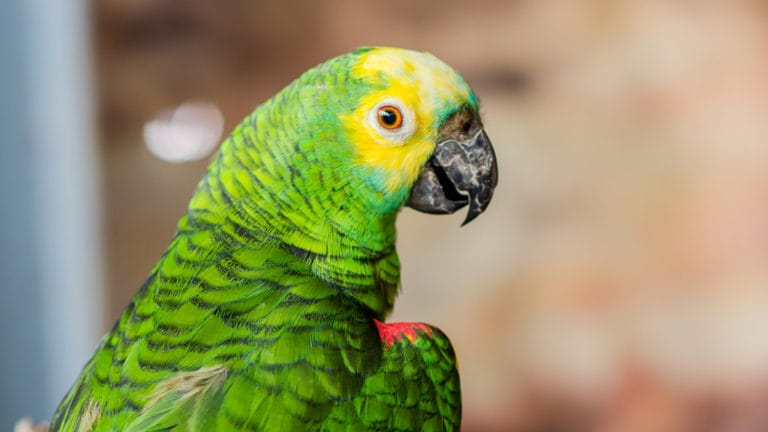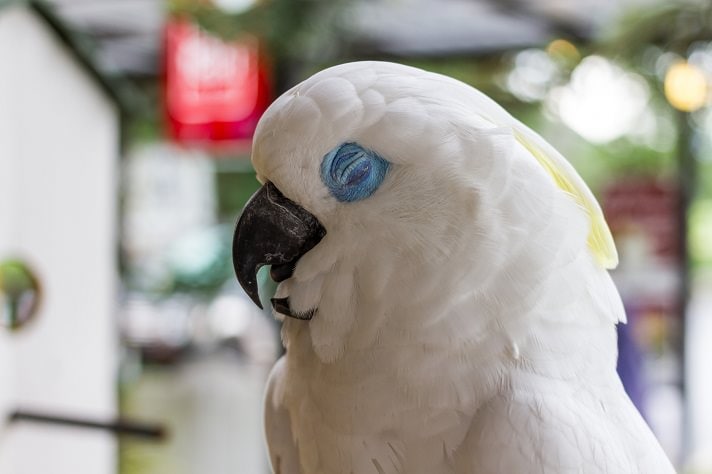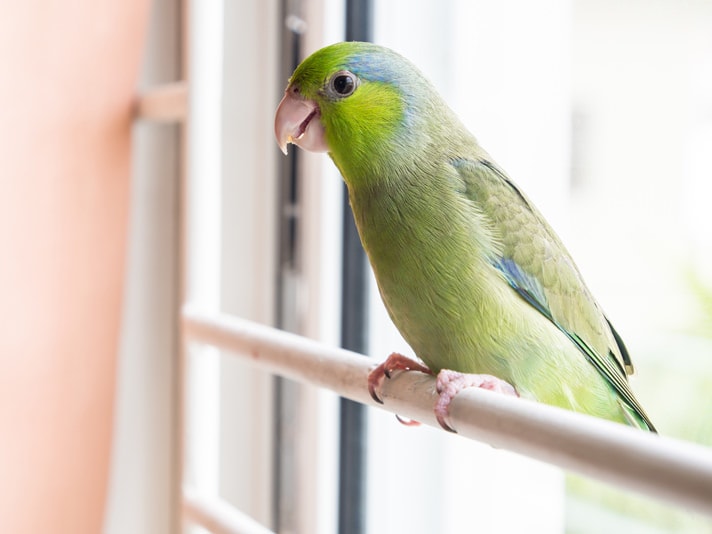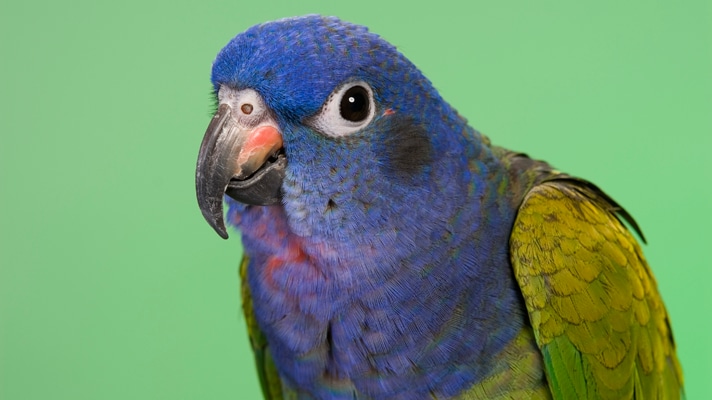If you fancy large birds, you can’t go wrong with an eclectus parrot. They’re not only beautiful, they can also entertain you with their chatter. But keeping an eclectus parrot is not for the time-strapped owner, says Dr. Katherine Quesenberry, head of avian and exotic pets at Animal Medical Center in New York City. “They’re not the type of pet you want if you have a very busy lifestyle and you’re not home very much,” she explains. (If “busy” best describes you, you’re better off with a small bird like a parakeet or cockatoo.)
But if you do have time and energy to invest, you’ll be amply rewarded. Read on for the lowdown on these colorful birds.
Personality Traits of the Eclectus Parrot
For years people thought the male and female eclectus parrots were totally different birds. That’s because they sport different colors: males are emerald green with brightly colored beaks while females are bright red. Like most parrots, they live an average of 40 years or so, so you have to be willing to make a lifelong commitment when you get an eclectus as a pet.
Their color differences mimic their personalities. Females are feistier and can be aggressive, while males are more docile. Still compared to other parrots, eclectus parrots of both sexes are gentler and calmer, says Quesenberry. They’re not particularly known for biting (unlike other parrots), though that doesn’t mean they won’t ever nip. And while eclectus parrots aren’t necessarily good pets for kids (especially little ones), they can be around children, as long as you can supervise the interactions.
They’re also pretty chatty, though they’re not prone to loud squawking like other parrots. They can be taught to speak and sing. They’re also very intelligent and require a lot of stimulation. So get your eclectus parrot a variety of toys—ones that he can chew on, puzzle over, and destroy.
One drawback to having an eclectus parrot: These large birds are susceptible to stress and are prone to feather picking, says Quesenberry. Feather-picking is when parrots bite, chew or pluck their feather with their beaks, which can damage their lovely plumage and skin. One of the causes for excessive feather picking is the stress that comes from spending too much time alone.
Spending Time With an Eclectus Parrot
Large parrots need to spend hours every day with their “flock,” which in this case is you and the people in your household, says Quesenberry. In other words, she adds, they need a lot of attention.
So what does that mean specifically? “It means interacting with your bird: Getting it out of the cage, talking to it, and hanging out with it,” Quesenberry explains. Some birds like to perch on your arm or shoulder or on the sofa or chair beside you. These birds also need a lot of exercise, so they must have room to fly around safely. You can also let your eclectus parrot follow you around your home as you go about your business.
Caring for Your Eclectus Parrot
While socializing with your pet parrot can help minimize feather picking, it may not get rid of the habit entirely.
“Because we don’t spay or neuter parrots the way we do dogs and cats, a lot of times eclectus parrots will feather pick out of sexual frustration once they hit reproductive age,” explains Quesenberry.
You can get your eclectus parrot a mate, since most birds do better in pair. But then you have to make the commitment to two large parrots instead of one. Another solution: Take your pet bird to the vet, who can prescribe hormones, notes Quesenberry.
Food. Like most big birds, eclectus parrots thrive on a pellet-based diet, which provides most of the nutrients these birds need, says Quesenberry. You can supplement your pet’s diet with a wide variety of fruits, like mangos, papayas, bananas, kiwis, and watermelon, as well as veggies like sweet potatoes, carrots, and corn. For pellets, try ZuPreem’s Fruitblend pellets, which are nutritious and provide natural fruity flavors that birds love. But certainly check with the vet for the best types of food to give to your parrot.
Health. Some of the more general signs your pet isn’t thriving: if he’s lethargic, or isn’t eating, drinking, or passing stools. If you see any of these signs—especially if your eclectus parrot isn’t eating—get him to the vet within the day, warns Quesenberry.
By: Linda Rodgers
Featured Image: Via iStock.com/JillLang
Share:











